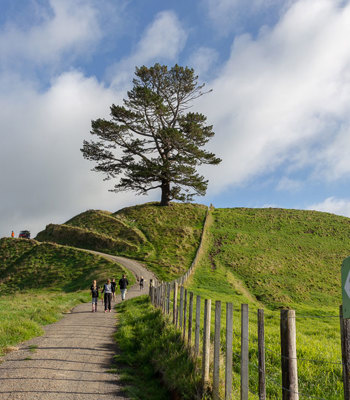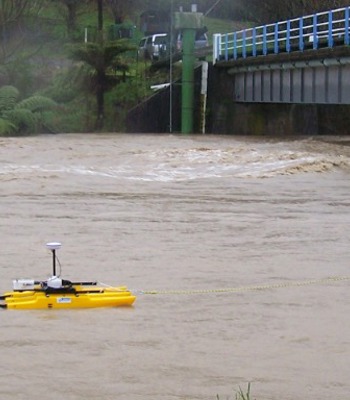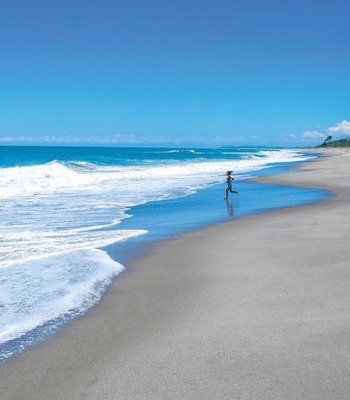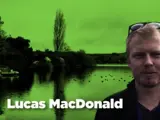|
Term |
Description |
||
|
Act |
In a legal context, an "act" typically refers to a specific law or piece of legislation passed by a governing body, such as a national or state government. Acts lay out the rules, regulations, and guidelines that must be followed within a particular jurisdiction. They are a formal way to establish legal requirements and standards for various aspects of society. |
||
|
Adverse effect |
An adverse effect means something that is not good or harmful. It is when an action or change in the environment could cause problems or damage. So, the regional council needs to consider and manage these bad consequences. |
||
|
Annual Plan |
An Annual Plan is like the to-do list for the council in a year. It shows what they want to do, how they will use their money, what services they will offer, and how much money they need from things like taxes to do all of this |
||
|
Annual report |
An annual report is created every year to review what happened during that financial year. It helps compare what was actually done with what was planned in the annual plan. You can find the rules for the annual report in the Local Government Act 2002, section 98 |
||
|
Asset |
An asset is something valuable, like a physical object, that lasts for a long time (more than a year) and helps in making money in the future |
||
|
Biodiversity |
Biodiversity means the variety of living things on Earth. It includes all the different plants, animals, and microorganisms, and the way they interact with each other and their environment. It is like the rich tapestry of life that makes our planet unique. |
||
|
Biosecurity |
Biosecurity is like protection for the environment and agriculture. It is all about preventing harmful things like pests, diseases, or invasive species from getting into a place and causing damage to plants, animals, or ecosystems. It is like guarding against unwanted intruders in nature. |
||
|
Bylaws |
A bylaw is like a local rule or regulation made by a city or town's government to manage specific issues within their community. These rules can cover things like parking, noise, or pet ownership, and they help keep things orderly and fair for everyone who lives there. |
||
|
Central government |
The central government in New Zealand is the national government. It is run by the Members of Parliament who get elected. It includes government agencies and the public service. For more info about the public service, you can check the State Services Commission |
||
|
Civil Defence Emergency Management |
Civil defence is about being prepared to protect and help people during emergencies or disasters, like floods, fires, or severe storms. It involves planning and organizing resources to ensure the safety and well-being of the community. Civil defence teams work to keep everyone safe and help when these difficult situations occur. Emergency management, when it comes to a regional council, is all about planning and coordinating actions to deal with unexpected and serious situations like natural disasters, accidents, or other crises. The regional council is responsible for preparing and responding to these emergencies, making sure that people are safe, and helping the community recover after the crisis has passed. |
||
|
Co-governance |
Co-governance means that different groups like indigenous communities, the national government, local government, and local organizations work together and make agreements to make sure they manage resources like land and the environment in a way that works well for everyone. |
||
|
Committee/komiti |
A council can choose to create a committee to focus on a specific area of responsibility within its operations. A committee is like a smaller team of members from the council who handle specific tasks, and it does not include all the council members. |
||
|
Community |
A community is like a group of people and organizations connected because they have something in common. They could be in the same place (like a neighbourhood), or they might share a similar interest or identity. |
||
|
Community outcomes |
Local authorities try to make sure that communities have good local infrastructure, services, and rules. They think about these goals when they make decisions. |
||
|
Conflict of interest |
Elected members should keep their personal interests separate from their roles as council members. They need to tell others if they have any financial or non-financial conflicts of interest and step back from making decisions related to those conflicts. |
||
|
Consultation |
Consultation means that the council asks for the public's input or opinions on a particular issue, plan, or decision. They want to hear what the community thinks before making a final choice. It is like a way to get advice and feedback from the people who will be affected by the council's actions. |
||
|
Deliberations |
Deliberations in a council context mean that council members are having serious discussions or thinking carefully about different ideas or options before making a decision on important issues, like new laws or community projects. It is like a thoughtful conversation where they weigh the pros and cons before reaching a conclusion |
||
|
District |
A district is a specific area or region within a city or a larger area, often with its own local government. It is like a smaller part of a city or region that has its own rules and services. |
||
|
Draft Policy |
A draft policy is like a rough or initial version of a set of rules or guidelines that a council is considering. It is not the final version yet; it is a working document open to changes and improvements. People may provide input and suggestions to help refine the draft policy before it becomes official. |
||
|
Elected Members (Councillors) |
An elected member of a regional council is a person chosen by the community to represent their interests and make important decisions about local matters, these elected members serve on the council to ensure that the community's voice is heard, and their needs are addressed. |
||
|
Environment |
The environment refers to everything around us, like the air, water, land, plants, animals, geothermal and all the natural and human-made things. It is basically the place where we live and everything in it. |
||
|
Erosion |
Erosion is when natural forces wear away the land's surface, which can include the ground under lakes and rivers. It also involves moving the bits of land that get worn away to other places. |
||
|
Fauna |
All the animal life. |
||
|
Feedback (Informal) |
Like a submission, this is a chance to provide your opinion or ideas about a specific plan, policy or issue the council is considering. This is a less formal part of the process but is still important and is presented to elected members during the process of council decision making processes. |
||
|
Flora |
All the plant life. |
||
|
Governance |
Governance means the way we manage and make decisions as a group in society. In New Zealand, it is about working together as a community to deal with and guide changes that are too big for individuals to handle on their own. |
||
|
Ground water |
Groundwater is water that is found underground in rocks and spaces between them. It is like water hidden beneath the Earth's surface. |
||
|
Hearings |
Hearings in a council context are like official meetings where people get a chance to speak about their opinions or concerns on certain matters, like proposed projects or changes in rules. Council members listen to what the public has to say during these meetings before making decisions. It is a way for the community to have their voices heard. |
||
|
Iwi management plan |
This is referring to a document that is important to an iwi (a Māori tribe or community) and is connected to the Plan being discussed. Local authorities must pay attention to or consider this document because it matters to the iwi. |
||
|
Long Term Plan (LTP) |
The Long-Term Plan outlines what the council will do in the future, how they will pay for it, and what they hope the community will achieve over the next 10 years. This plan guides the Annual Plan and gets checked every 3 years. |
||
|
Mana whenua |
Mana whenua refers to the Māori people who have strong ancestral connections to specific places in the Bay of Plenty. They have traditional leadership and authority in those areas. |
||
|
Minutes |
The minutes of a committee meeting keep a record of which Elected Members were there, what decisions were made, and any input from the public. They might also include additional documents that were not in the meeting's agenda |
||
|
National Policy Statement |
A national policy statement is a clear and official document created by the central government (the Beehive) to provide guidelines and rules on specific important issues that affect the entire country. It helps to ensure consistent decision-making and standards across New Zealand in areas like the environment, housing, or public transport |
||
|
Proposed Change |
Proposed changes are ideas or modifications that council members suggest improving or alter something, such as rules, regulations, or community plans. These changes are put forward for discussion, and the council considers them before deciding whether to accept or reject them. |
||
|
Rates |
Rates are like taxes you pay to your local government. They use this money to provide services like public transport and environmental protection. The amount you pay is based on your property's value, and it helps your community. |
||
|
Rates remission |
Rates remission means the regional council may lower or even eliminate a fee or charge that you owe them, especially if you're facing financial difficulties or other special circumstances. It's like getting a discount or not having to pay the full amount. |
||
|
Reform |
Reform means making significant changes or improvements to a system, process, or rules. In a council context, it could involve revising how things are done or updating policies to make them work better or more efficiently. It is about making things better by changing the way they work. |
||
|
Region |
A region is a bigger area that includes cities, towns, and the countryside. It is like a larger part of a country with its own characteristics and sometimes its own government. Regions can have their own unique features and ways of doing things. |
||
|
Regional Council |
A regional council is a type of local government that looks after a specific area. They have important jobs like taking care of water, land, air, and the coast, as well as making rules for the region. They also handle things like managing rivers, preventing soil erosion, and planning for emergencies. Some city councils do these jobs too, and they are called unitary authorities. These councils cover areas based on things like rivers and lakes. They also have authority up to 12 miles out to sea. A regional council is led by a chairperson who is chosen from the council members, and they can have between six to fourteen elected members. |
||
|
Regional Plan |
A regional plan is a set of official rules and guidelines created by a regional council to manage and protect the environment and resources within a specific region. These plans help make sure that land use, water quality, and other factors are controlled in a way that benefits the local area while considering environmental and community needs. |
||
|
Regional Public Transport Plan |
A regional public transport plan is like a roadmap for how buses, and other public transportation should work in a specific area, like a region or a city. It outlines things like where the routes should go, how often the services should run, and how much they will cost. The plan helps make public transportation better and more organized for the people who live there. |
||
|
Resource Consent |
A resource consent is permission or approval granted by a local government or council to use land or natural resources in a particular way. It is often needed for activities like building construction, land development, or environmental changes. Resource consents ensure that these activities comply with local laws and regulations and consider environmental and community impacts. |
||
|
Resource Management Act |
The Resource Management Act (RMA) is a law in New Zealand that governs how the country's natural resources, like land, water, and air, are managed and protected. It sets rules for land use, environmental conservation, and development projects to balance economic and environmental interests. The RMA aims to ensure that resources are used responsibly and sustainably for the benefit of both the present and future generations. |
||
|
Spatial Plan |
A spatial plan is a document that outlines how land and space in a specific area will be used and developed over time. It usually covers aspects like housing, transportation, parks, and business areas. This plan helps guide the physical growth and organization of a city or region to ensure it develops in a well-planned and sustainable way. |
||
|
Statutory requirement |
Statutory requirement for a regional council means that there are specific rules and regulations set by the law or government that the council must follow. These rules are not optional; they are mandatory and legally binding. Regional councils are government bodies responsible for managing and making decisions about certain geographical areas, and they must adhere to these legal requirements as they carry out their duties. Failure to do so can lead to legal consequences. For example, it is a statutory requirement to hold public consultation: |
||
|
Submission (Formal) |
A submission is like expressing your opinion or ideas about a specific plan, policy, or issue the council is considering. It's your way of telling the council what you think about it, whether you support it or have concerns. Submissions allow the council to hear the community's thoughts before making decisions. |
||
|
Territorial authority (TA) |
Territorial authorities are a type of local government, and they can be either city or district councils. They all do similar things and have the same way of working. These authorities handle tasks like providing local infrastructure (like water and roads), keeping the environment safe, preparing for emergencies, and making sure that buildings and activities follow the rules. They also control things like noise and how land is used. |
||
Vision
Mā te kotahitanga o Toi Moana me ngā mātātahi, ka ora ai a taiao me ngā
hua kai roto i a ia, hei taonga tuku iho mo ngā reanga e whai ake nei.
Through unity of Toi Moana and rangatahi, the guardianship of our environment
and the people will thrive and live on for generations to come.
Youth engagement plan
Getting young people involved in decision making and action
Our Youth Engagement Plan has been developed with over 500 rangatahi in the Bay of Plenty Region.
The focus areas are: Kaitiakitanga, Whanaugatanga, Kotahitanga and Manaakitanga
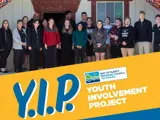
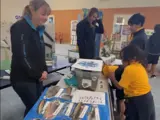
Freshwater Show & Tell with schools
Our staff recently visited two schools (Nukuhou North and Allandale in Whakatāne) and set up some interactive displays with some live freshwater fish and stream invertebrates to assist the students with their current learnings.
Nukuhou North School have been studying freshwater fish and stream health with their local environment and Allandale School were holding their annual Science Fair, so we were invited to participate in that. The kids were very curious and engaged and loved the live displays and hands on learning.
What can I do?
Present to Council
Council holds meetings on a 'six-weekly' basis. Members of the public may request to speak during the public forum which is available at the beginning of the meeting.
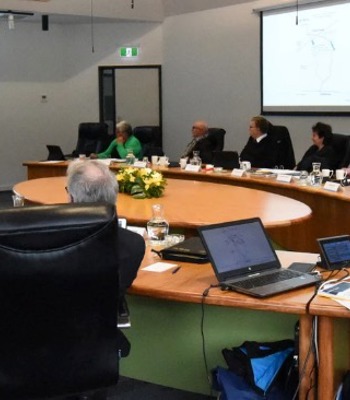
Enabling democratic local decision-making and action by, and on behalf of, Bay of Plenty communities.
Summer Assistant programme
Each year our Summer Assistants have an important role - supporting our teams and completing significant pieces of work throughout the Bay of Plenty.
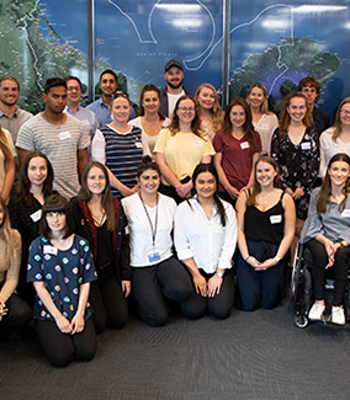
Our summer student programme has been running for 28 years because we believe the best place to learn is on the job.
Take the bus
Public transport is a critical component for transporting and contributing to a thriving region and we are committed to delivering this vision for the Bay of Plenty.
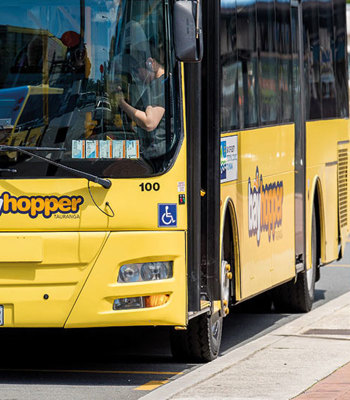
Our regional transport system is vital to everyday life, from travelling to work, play and services, to getting access to the goods we need, and helping our exports and imports move smoothly to and from ports and airports.
Bring your passion to the cause
Share your own experiences, volunteer your time and provide local knowledge and connections!
Volunteers do some of the most crucial work across our region. Find out where you can be involved.
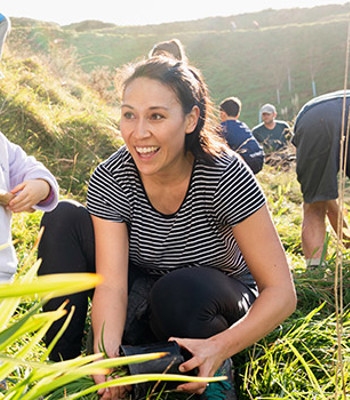
Volunteers help Regional Council to extend work programmes, build community resilience and provide invaluable localised knowledge with their diverse skill-sets and experience.
Have your say
There are ways to contribute to decision making. Keep an eye out for opportunities to share your thoughts on projects and changes that are happening in our region.
You can also sign up to our engagement-focused e-newsletter.

There are ways to contribute to decision making. Keep an eye out for opportunities to share your thoughts on projects and changes that are happening in our region.
Make a career of it
Find more about some of the jobs we do at Toi Moana
Keep an eye out on career opportunities – This could be YOU!
Check out more about what it may mean to work at Toi Moana and see if there is a job for you! Keep an eye out for the recruitment phase of the Toi Moana Summer Experience Programme. A fantastic opportunity to work with the team over the summer. This could be just what you are looking for.
Youth Spaces around the Rohe
We work with other councils, agencies, and the communities across the region. Keep an eye out for the latest initiatives, projects and events.
- Envirohub is a cool place to learn and take action for a more sustainable future.
- Priority One Tauranga Moana is the Western Bay of Plenty region’s economic development organisation. They have a cool space for young people to help develop skills and talent for the future by providing students information, pathways and leadership opportunities.
- Bay Conservation Alliance has a Tauira Mahi programme. Explore some great nature and environmental education resources.
Stay informed
Keep up to date with the work we’re doing and know when you can get involved by following our channels, or if you have questions or want to learn more about a project you can also email our Community Engagement Team.
Commonly used Council word(s) glossary

